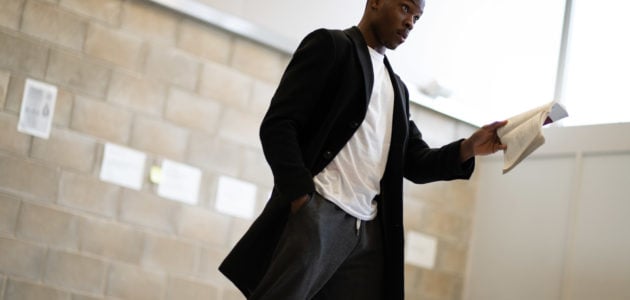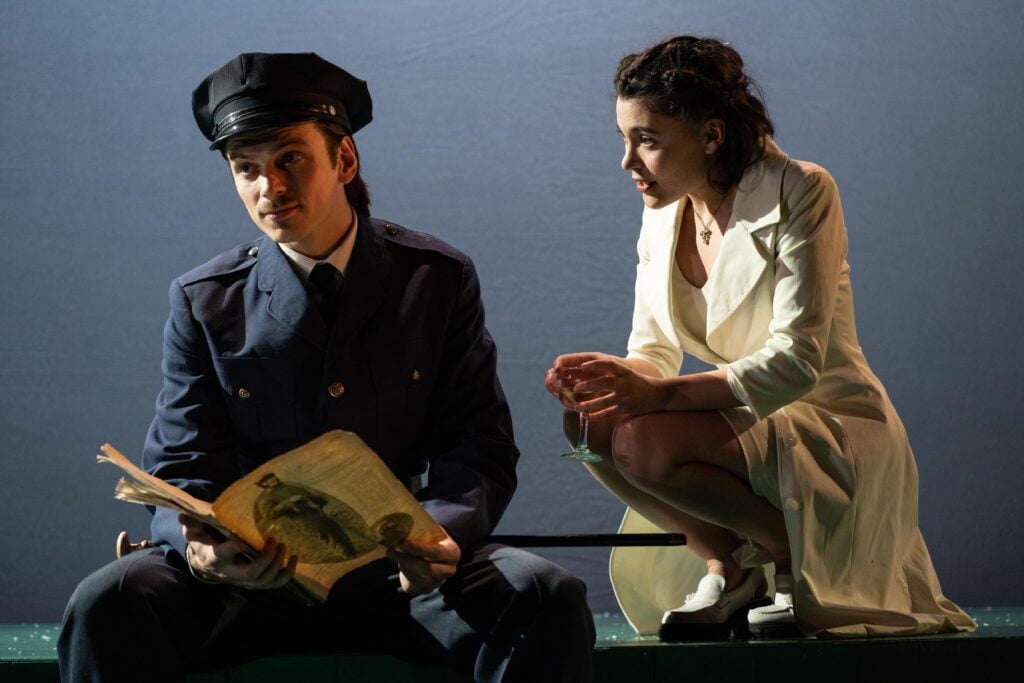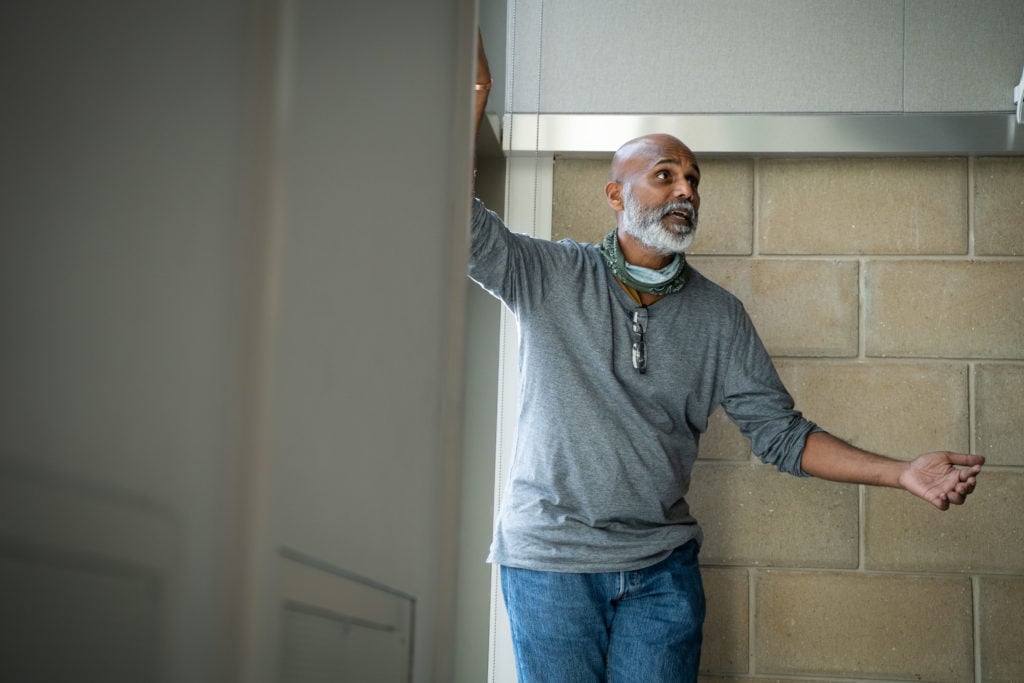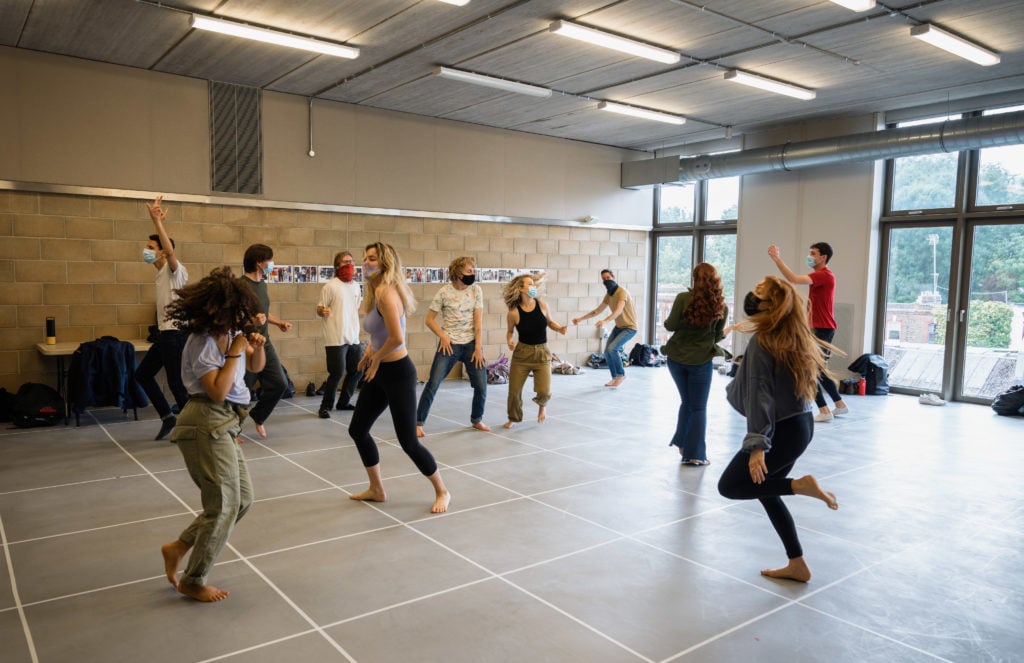
How to Get Into LAMDA
The London Academy of Music and Dramatic Arts (LAMDA) is widely considered to be one of the best drama schools in the world. LAMDA is a leading British drama school and was founded in 1861. This long standing acting school has trained many of the great actors we know and love today, including Benedict Cumberbatch, Brian Cox, Chiwetel Ejiofor, and Ruth Wilson (to name a few). The alumni of the school have been collectively nominated for 8 Academy Awards—with 5 wins—and a slew of other major industry gongs including 38 Olivier Awards.
Although it has this prodigious reputation, no drama school is one fixed thing. LAMDA is constantly evolving and adapting to the changing industry and, hopefully, this article will help to reveal a little more about the school as it currently stands.
I was fortunate enough to sit down with Vik Sivalingam (Full Interview Below), who is the course leader of the BA program. Most of the information provided here comes straight from Vik and it is incredibly special have these insights to share with you all.
To clarify: this article, and the information provided, is for the flagship three-year Bachelor program. They do have other great courses, including the MFA program (which is a fantastic post-graduate option for artists looking to expand their skills and academic prospects) but this page will be mainly focused on the three-year course. With Vik, I discussed the many changes that are happening at LAMDA, as well as how to give yourself the best shot at getting into this competitive drama school.
So let’s get into it!

Why should you go to LAMDA?
Before we look at how to get into this amazing school, we should ask WHY? One of the things that kept coming up in my discussion with Vik was making sure that LAMDA is a good fit for you. You shouldn’t simply apply because your favourite Marvel Superhero (or the actor who played them) studied there. You need to investigate for yourself whether an intense, three-year program at LAMDA works for you and your goals. To start with:
- Read everything you can on their website.
- Watch interviews and read external information on pages like this.
- See if you can connect with some current students or alumni and get their perspectives.
- Understand the teaching staff, in addition to the methodologies or the ethos of the school.
- Audition and get a sense of how they work in the room.
In my opinion, solid, three-year training is still one of the best ways to get into the acting industry. You build amazing connections, foster a strong peer-support network, develop your skills in a really focused way and come out with the confidence needed to be a professional actor.
For more on should you go to drama school?
Here are some specific positives about LAMDA from my interview with Vik:
First of all, it’s incredibly practical. There is very little academic content, such as writing essays, which has been a problem with many drama schools around the world as universities take over and force courses to be more academic. The course is also incredibly rigorous: you are working with a ton of incredible teachers and getting a lot of contact hours.
Finally, the standard of this school is very high. In my drama school training, I learnt as much from my peers as I did from the teachers. Working with a cohort of some of the best young actors in the country will be hugely motivating, and you will definitely find that at LAMDA.
LAMDA Course details + Common Questions
Before I get into the “how”, I wanted to just touch base with some really common questions that actors have when applying for LAMDA. I hope some of these are helpful.
How long is the course?
The BA program runs for three years full-time.
How many students do they accept?
They accept 30 students from around the world.
Is it practical? (I want to do a more intense training.)
Yes! LAMDA boasts one of the most practical acting courses out there. If you are looking for a serious, intense, full-time acting training, then this is the right fit for you.
Can you apply to LAMDA as an international student?
Absolutely! This was one of the things I was most surprised by in my interview with Vik. They are very open to international students and, in fact, take a number of international applicants every single year. Given the now-commonplace practice of auditioning for drama school via online submissions, it is now easier than ever to apply from anywhere in the world. The only thing to note is that the fees are higher when you are an international student—although some scholarships/funding may be available upon application.
Is there an age limit?
I asked this question directly of Vik and he had a really interesting answer. There certainly is no official limit but, generally, most actors are between 18-26. You can audition at any age and still get in; but, as he mentioned, if you’re auditioning for the course in your mid-to-late 30s, the question you’ll be asked is “is this the right fit for you”? It’s possible another program like the MFA will make more sense.
How to Get into LAMDA

This is what you came here for, so let’s get into it!
Hopefully by now you are feeling pumped to add LAMDA to your audition list (if you hadn’t already), but here comes the tough bit: you are now up against approximately 2500-5000 applicants. These applicants include many of the best up-and-coming actors from around the world. Pressure on? Well, sort of…
After reading this article, and the subsequent interview, I think you should feel really confident about how to approach your audition.
I work with actors every day helping them prepare for drama school auditions. Here at StageMilk, we have helped hundreds of actors get into the top drama schools around the world. However, instead of just sharing my own tips and tricks, I thought I would do one better in this article and expound some insights directly from the man you will likely be auditioning for!
In our interview, Vik talked about four key factors they use to evaluate an audition:
#1 Authenticity
One of the major things that will help you get into a competitive school like LAMDA is not focusing on the competition. That might sound counter-intuitive, but hear me out. When you think of it as “beating” thousands of actors, it will his lead to you to trying to “get it right” and “be the best”. This competitive attitude pulls you away from your creative, playful and authentic self. Remember, the number one thing they are looking for is authenticity. They want to see you! They want to see your take on your monologue (or in the call-back, your interpretation of the scene). They want to see unique and creative choices, so avoid imitation.
Read the play you are working on again and again and really try to understand the world of your character and the story. Once you have this understanding, make your own character choices, focus on finding “you” within the character (not what you think they will want.)
#2 Curiosity
Of all the clues that Vik gave us in the interview, this one is possibly the hardest to get across in a single monologue (which is what you’ll be showing in your first audition). However, my understanding of this is that they want to work with artists. Artists who are excited and curious about the world of theatre and storytelling.
So the main tip here is to pick a piece that isn’t too well known. Performing an overdone monologue doesn’t tell us anything about you and the artist you want to be. In your preparation for the audition, read tons of plays and explore stories that you resonate with. I think the simple act of picking a unique and interesting monologue will put you ahead of thousands of other actors who jump on Google and just grab the first Oscar-bait monologue that pops up.
Check out our full Monologue Database
#3 Generosity
We didn’t explicitly go into this point in our chat, but I think Vik was talking about two things:
One is the generosity you bring in your work. This means bringing your heart and openness into performance. How engaged are you when listening to your fellow actor? How vulnerable are you with the work? How present are you within your monologue or scene?
Secondly, I think generosity becomes an influential factor in the later auditions (the call-back stages) when you start working with other actors. At this point, you are not in competition: they are looking to see how well you work in a group. So your openness, kindness, and generosity is what will shine through. Remember they are creating an ensemble of 30 actors that will have to work together for three years, your ability to work in a group is paramount.
#4 Play
When Vik said this to me, I had a little internal smile. “Play” is one of my most common acting notes when I am teaching. Especially in the work of young actors, there is a desire to show off one’s skills, to be seen and respected as a “serious actor”. In taking the craft seriously and wanting to do a great job, this can often lead to earnest and overwrought performances, as well as actors getting caught in patterns. What happens when the judging panel stops you, mid-performance, and asks for a totally different objective or interpretation? Be ready to experiment. Do your work, make your preparations, but keep your process open and flexible. Great acting work is playful and spontaneous and we want to see this quality in your first monologue audition.
WATCH the Full Interview with Vik Sivalingam (Course Leader at LAMDA):
Tips for Getting Accepted to LAMDA
The four main areas I’ve outlined above should give you plenty to focus on. However, I wanted to share a few final personal tips and ideas to consider when preparing for your audition. I encourage you to integrate some of these ideas into your preparation over the next few months.
Avoid overdone monologues
I mentioned this above, but it warrants repeating. LAMDA is unique in that the first round is just one monologue. That puts a huge pressure on a single piece of work. Therefore, take the time to find something you really connect with. Vik talked a lot about wanting to find and work with “artists”, and so what you pick—and the message behind it—is crucial.
Practice monologues
Almost every early drama school audition uses MONOLOGUE as the audition tool. Yet very few actors are practising the craft of monologue performance. It is a unique way of performing and, thankfully, one you can get way better at with practice. I would encourage you to practice a number of different monologues before landing on the one you will audition with. Explore different genres, styles and attitudes. If you have a bit of time before your audition, see if you can play around with at least 5-10 monologues just to help you get used to this format. Even if you end up using none of them at all in your final audition, the practice will help you strengthen the preparation of whatever choice you end up making. For more on this subject, we have an amazing resource to help with monologue practice you should look at.
Scene work preparation
I was surprised to hear that at the call-back stage for LAMDA, actors are working on a scene. In most drama schools, you continue to use monologues even in the later stages of auditions. If you haven’t done a lot of plays, or scene work, this will be a challenge. So, once again: make sure you regularly practice scenes so that when you get that all-important call-back you are ready to go. See if you can get together with some actor friends and practice working on scenes, or else join a scene club like ours here at StageMilk!
More on our amazing scene club.
Practice taking direction
In your first audition, it’s all you. You are the director and performer. However, if you are fortunate enough to get a call-back, you need to realise that it is no longer just about the choices you make. The key thing they want to see is how well you can take direction and “play”. This, again, is a skill you can practice. Imagine what direction they might give you and implement those changes in your rehearsal. The worst thing you can do is get your work locked into a pattern.
If you’re uncomfortable with the idea of working with a director—it might be a new skill, or you’ve been traumatised by first-year, film-school tyrants—think of it this way: when you take direction, you’re showing LAMDA the kind of student you will be. Bring opinions to the room, bring ideas and passions … but be ready to learn from and trust your teachers. They’ve got your best interests at heart.
More on taking direction as an actor.
Work on your physicality and voice
Your physical and vocal expression are as important as your acting skills. In fact, in the call-back you will work almost as much on physical and vocal work as you will on scene work. If I was serious about heading to drama school, I would consider working with a professional voice coach and also working regularly on my physicality. That might mean yoga, tai chi, taking a dance class—anything to help you with physical confidence and expression.

(c) Alex Brenner
Graduation and Showcase
One area a lot of young actors are interested in is what happens after the course, and how much a LAMDA degree might help you in the industry.
The first element is the all-important showcase, where agents and casting directors get to see your work. LAMDA offers both public shows and a dedicated industry showcase, which means there are many opportunities to get exposure for your future career. As it’s situated in London, you are immediately connected with the heart of the British industry. This is one benefit over other, less central schools such as Bristol Old Vic or The Royal Conservatoire of Scotland.
After graduating, hopefully you will pick up an agent; from then on the LAMDA name will definitely come in handy throughout your career. This school has a fantastic industry reputation and it certainly looks great on the CV! Here is a little video with some more insights from students:
Conclusion
LAMDA is one of the most well-respected and long-standing drama schools for a reason. It’s a great institution and, although you can never get the full picture sitting on the outside, I think if you are serious about a three-year drama school degree, LAMDA should definitely be on your audition list. It will be tough, and might take a number of years to get in, but if you do you are assured solid training and a great head start in the industry. I wish you all the best, and remember: if you have any questions or need any help, we are always here!
IMAGES: All images provided by LAMDA with their permission.

Leave a Reply